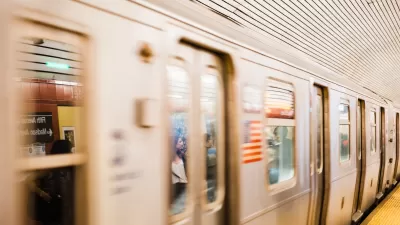"Healthy Ride," the bikeshare system launched in Pittsburgh in 2015, is looking to improve on sagging performance.
Christopher Huffaker reports:
When Healthy Ride, Pittsburgh's bike share program launched in the summer of 2015, the system's 50 stations and 500 bikes were put to good use, seeing over 30,000 rides that summer. Unfortunately for the non-profit network of bikes and its promised healthiness, however, the last two years have seen ridership go down, in more ways than one: fewer people are riding, and they are mostly riding downhill.
In addition to elaborating on those points, Huffaker also reports that changes could be on the way at the bikeshare program. Those changes, which program director David White has called "Healthy Ride 2.0," potentially include hardware and station changes, along with the addition of new stations.
FULL STORY: Pittsburgh's Healthy Ride not so healthy, but changes are on the way

Planetizen Federal Action Tracker
A weekly monitor of how Trump’s orders and actions are impacting planners and planning in America.

Chicago’s Ghost Rails
Just beneath the surface of the modern city lie the remnants of its expansive early 20th-century streetcar system.

San Antonio and Austin are Fusing Into one Massive Megaregion
The region spanning the two central Texas cities is growing fast, posing challenges for local infrastructure and water supplies.

Since Zion's Shuttles Went Electric “The Smog is Gone”
Visitors to Zion National Park can enjoy the canyon via the nation’s first fully electric park shuttle system.

Trump Distributing DOT Safety Funds at 1/10 Rate of Biden
Funds for Safe Streets and other transportation safety and equity programs are being held up by administrative reviews and conflicts with the Trump administration’s priorities.

German Cities Subsidize Taxis for Women Amid Wave of Violence
Free or low-cost taxi rides can help women navigate cities more safely, but critics say the programs don't address the root causes of violence against women.
Urban Design for Planners 1: Software Tools
This six-course series explores essential urban design concepts using open source software and equips planners with the tools they need to participate fully in the urban design process.
Planning for Universal Design
Learn the tools for implementing Universal Design in planning regulations.
planning NEXT
Appalachian Highlands Housing Partners
Mpact (founded as Rail~Volution)
City of Camden Redevelopment Agency
City of Astoria
City of Portland
City of Laramie





























